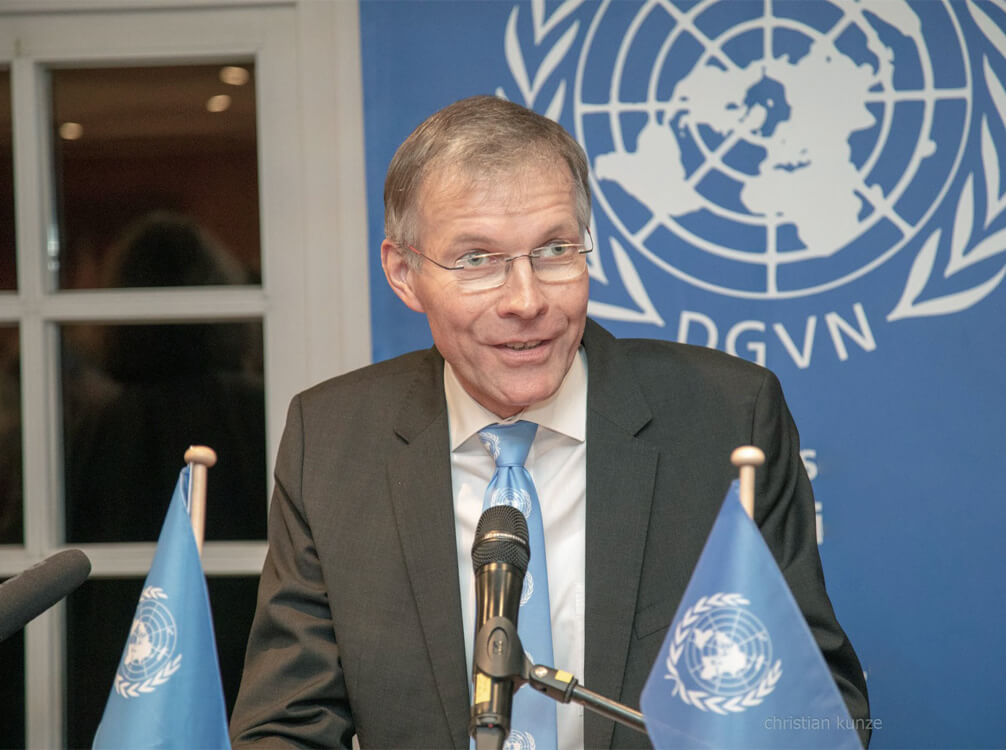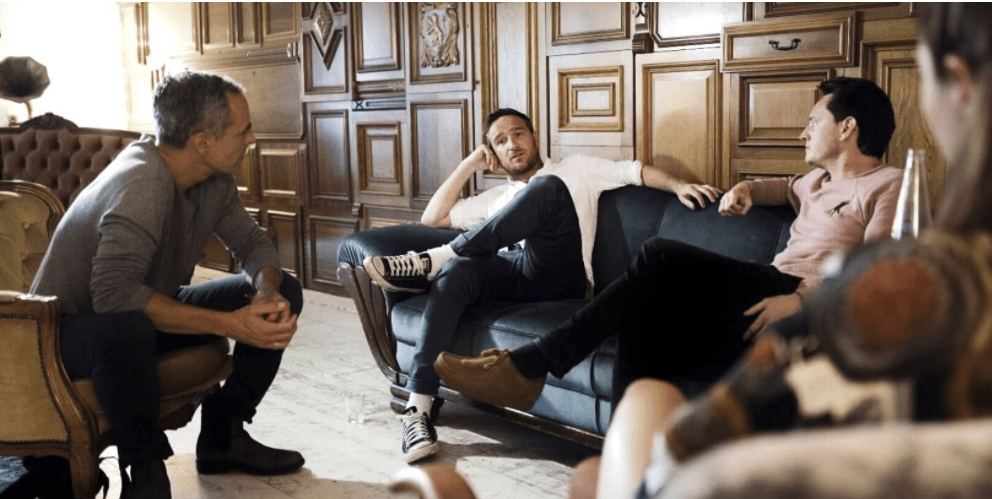Everyone is talking about the war right now and whether Russia will succeed in achieving its military goals.
But nobody is talking about scenarios how this war could be ended diplomatically.
You're an expert in peace processes. Do you see a diplomatic way how peace can be restored quickly in Ukraine?
Ekkehard Griep: At the moment, unfortunately, we are still in an escalation phase of this conflict
Nevertheless, I agree with you that we should think about a peaceful solution, beyond the day and beyond the week, and the answer to the question of how that could happen is relatively clear.
There has to be serious negotiations, in the context of a forum where mutual interests are discussed.
However, in my view, this is only possible if there is agreement on certain basic principles on the basis of which such talks can take place.
Such basic principles include provisions such as those in the United Nations Charter, for example, respect for the national sovereignty of each country involved and the renunciation of the use of force to assert national interests.
Incidentally, this is also stated in similar terms in the resolution that was adopted last week by the United Nations General Assembly with an overwhelming majority.
Not only does it unequivocally condemn the Russian attack, it also opens the door to negotiations, to mediation and to a diplomatic solution.
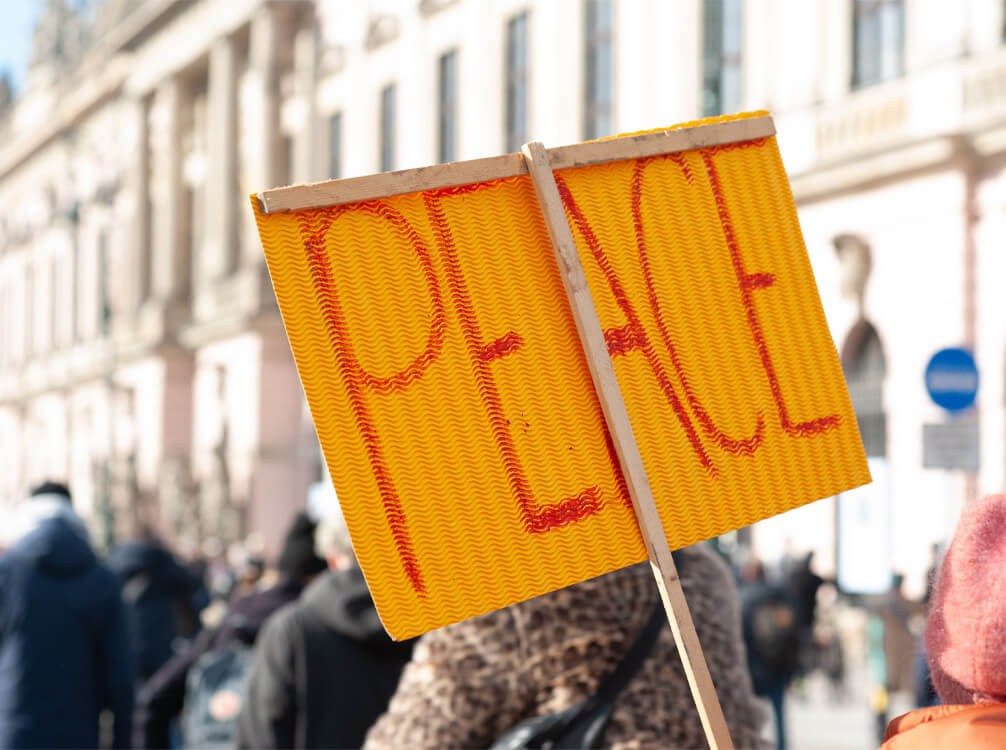
That must and will come at some point.
The sooner, the better.
And best of all, if it goes hand in hand with a cease-fire and an end to this military occupation.
Only then can we really negotiate viable solutions and the safeguarding of mutual interests.
Alexander S. Wolf: Now let's look at the situation realistically: if you were Putin now, you couldn't just back down now.
And Putin is not Putin - Putin is a network of people.
This network Putin can hardly say: "well, we withdraw our troops, return Crimea, leave Donbass and the other occupied territories and then start negotiating.
That would mean a complete loss of control and power.
Then Putin could actually resign right now and go directly to the Criminal Court.
He will definitely not do that. He can't do that.
Ekkehard Griep: I am not so sure that Putin stands for the Russian people.
What you read and hear is that he is quite lonely, quite isolated, and that many people in Russia are quite critical.
But they are afraid to speak out publicly because they fear repression.

So maybe Russia's unified position only seems that way. Maybe it is already fragile from the inside.
I could imagine that there are people in Putin's power apparatus who are quite thoughtful and do not simply follow the word of their master.
The more the so-called "special operation" in Ukraine deteriorates, the louder and stronger critics will become,
the greater the pressure on Putin to exit the escalation phase and move to the negotiation phase.
Nevertheless, it is of course true that an offer must be made that Putin can respond to.
One possibility could be to introduce a prominent personality into the discussion as a mediator who is acceptable to both sides.
Perhaps the Secretary-General of the United Nations, for example.
We should not forget that Russia is a permanent member of the Security Council and without Russian consent the Secretary-General of the United Nations would not have taken office.
There is also the OSCE, of which Russia is a member.
And the OSCE could perhaps appoint a mediator or a group of mediators, including someone who is more on the Russian side.
That would perhaps be one way of getting Mr. Putin to enter into serious negotiations.
Alexander S. Wolf: So let's assume that the sanctions and the failure of the Russian invasion so far will lead to a willingness to talk.
There have been first positive signs. After all, phone calls with Macron and Scholz were initiated by Russia.
Will it be enough for Ukraine to guarantee its future neutrality, accept the autonomy of the Donbass and perhaps concede Crimea to Russia?
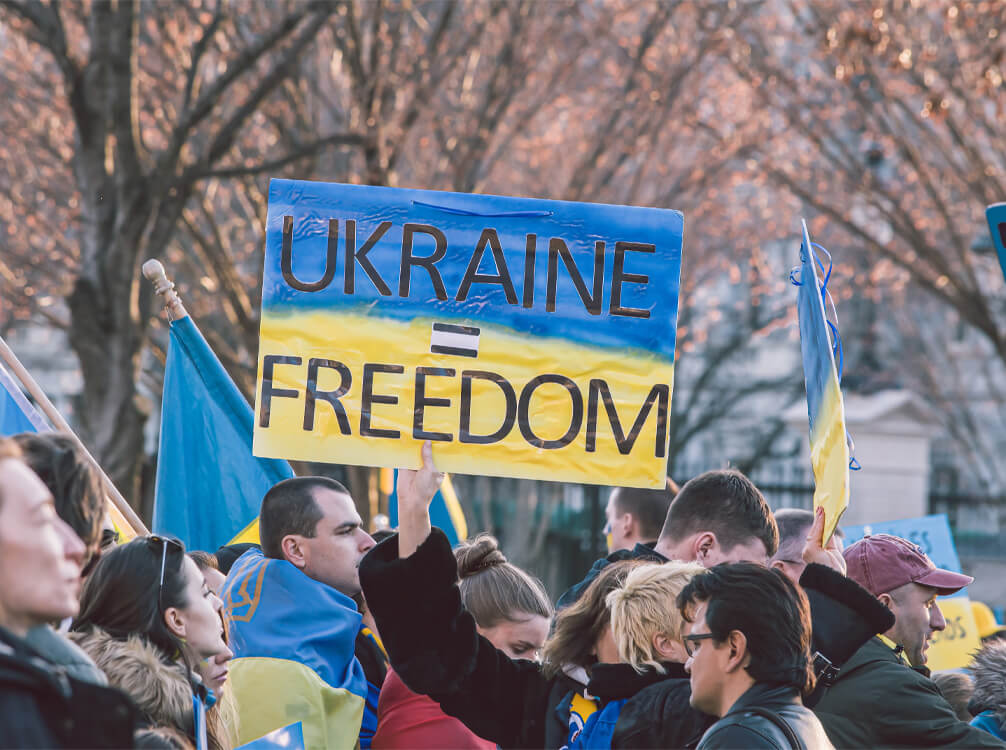
Ekkehard Griep: Not really.
I think this has to be embedded in a larger framework.
We could certainly talk about the security structures in Europe, i.e. far beyond the actual "object of dispute" of Ukraine.
A peaceful settlement with Russia concerns us all. Of course, it has to be said that we already have a whole series of regulations: the CSCE Final Act of 1975, the Charter of Paris of 1990 and many more.
There are principles that everybody has committed to, and they have been enshrined in the United Nations Charter.
All of this is in place but clearly it's not being recognized by one side now, and it's being pounded into the ground.
In order to create a format for talks in which Russia will also participate, a larger European framework could be an option.
Whereby we are then not talking about a few days of negotiations, but possibly years.
We may have to renegotiate and reformulate many things.
But this scenario is also associated with doubts. But there are also doubting voices around this solution because right now we're seeing how the current order of peace and security in Europe is being pushed aside by Russia.
That's why it's difficult and it's going to take a lot of effort.
But ultimately all parties want peace and security, this includes Russia.
After all, we all want the kind of order in Europe that is stable and accepted by all. But we're now seeing that this is easier said than done.
Alexander S. Wolf: Finally, the question of Putin's motivation.
He and his people repeat mantra-like that they feel threatened by the "West," that is, by us. What could we do, so that Russia no longer feels threatened?

Ekkehard Griep: You have to distinguish between the reality and the perception, and also the statements of Russia.
I mean, it is common knowledge that NATO does not threaten or attack anyone.
That is not conceivable at all, either politically or in terms of operational capabilities.
But that is an argument that Putin always makes: NATO has moved closer to Russia's borders and threatens Russia's security.
To me, it's a smokescreen that just doesn't convince me.
The West (if you can call it "the West") will always reaffirm - credibly, in my view - that it stands by the principles laid down in the internationally binding documents that Russia has also signed.
In the future, the EU, NATO, or individual states could perhaps commit to being guarantor powers or they could act to safeguard certain agreements, that is, to guarantee that they will be respected.
For example, respect for national borders, respect for minority rights and so on.
This is an issue that is important to Putin, which is understandable.
But this would also have to be based on reciprocity.
The rights of minorities and the borders must then also be protected everywhere.
I would like to add another aspect that could help to ensure that an order (whatever it looks like in the future) remains stable.
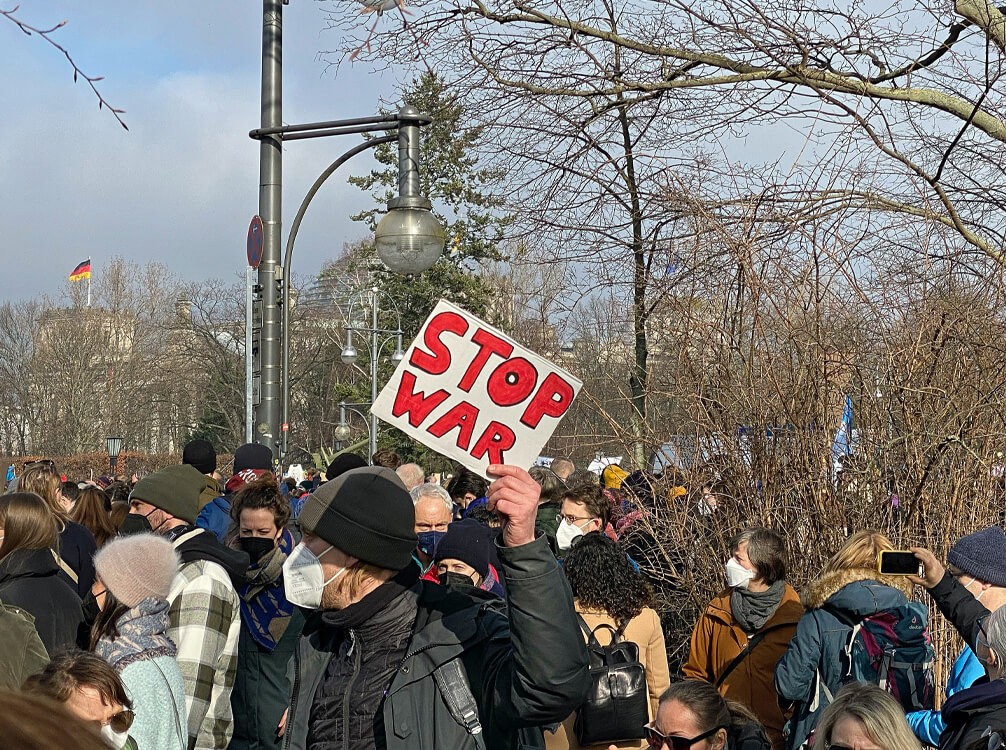
It is about connection not only on the state level, but also on the human level: to me growing the network of connections among people is essential - this starts with student exchanges, with cooperation between universities, and it goes all the way to town partnerships.
Such partnerships at the non-governmental level, which are filled with life, help people to understand each other and not to slip into confrontation.
And fundamentally, it would be important to get away from this thinking in terms of "power" and "spheres of influence".
According to the motto, "Every country has a vested interest in power, and now we're building a buffer around that."
That is simply no longer in keeping with the times.
That is the 19th and 20th centuries. But we are in a different time today.
I believe that this way of thinking related to power and spheres of influence no longer meets today's challenges.
This might be considered a somewhat utopian view: borders should cease to be something that separates.
I imagine borders as lines on a map, but nothing more.
Going forward, borders could be overcome as interstate demarcations and barriers; borders should not primarily separate, but connect.
In Europe we have actually managed to do this quite well in recent decades, despite many difficulties.
And if all those who are of good will subscribe to such a philosophy, that might be a long-term solution that also makes peace and security between neighboring states possible.
Because what we are experiencing now is a fight over borders with quite terrible and cruel consequences.
That is not a model for the future.
